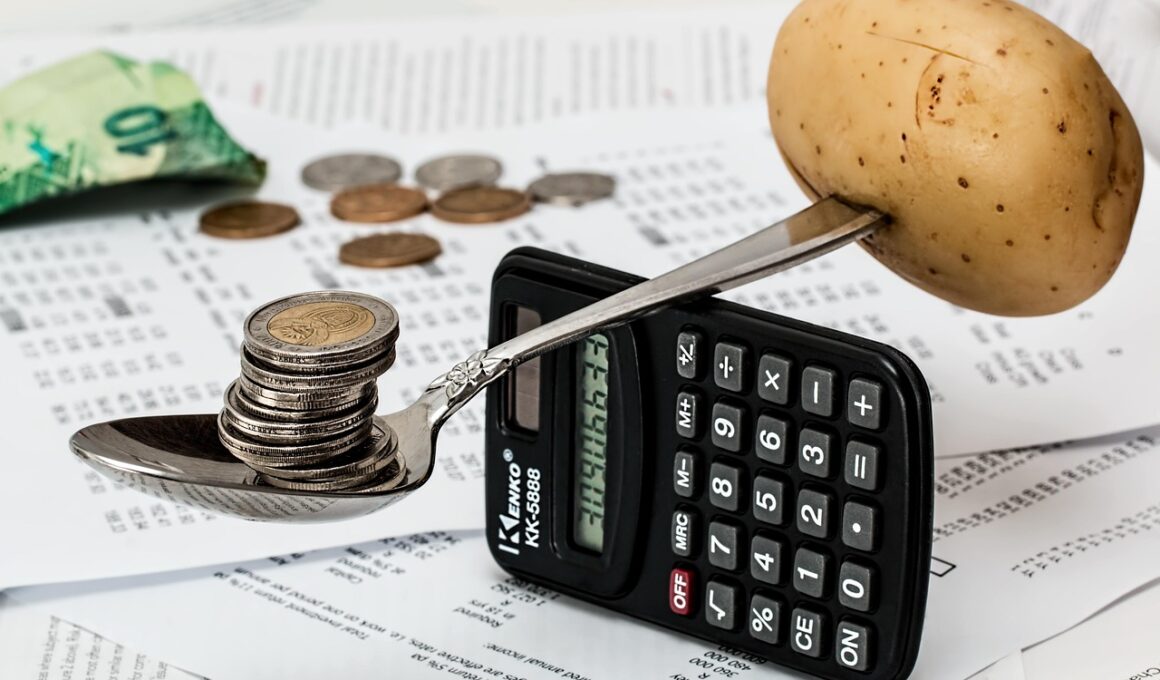Using Budget Challenges to Jumpstart Your Financial Independence Journey
Embarking on a journey towards financial independence can often feel overwhelming. This is where budget challenges come in, serving as practical strategies to help those seeking to gain greater control over their finances. Through various methods, individuals can maintain a structured approach to their spending and saving habits, ultimately leading to financial wellbeing. One of the most effective ways is to set clear, achievable goals within these challenges. Budgeting lays the foundation for successful financial planning, but engaging in specific challenges can push individuals to stick to their budget and, ultimately, reach their financial aspirations. In this article, we will explore a variety of budget challenges, their purposes, and the ways they can assist you in your journey towards financial independence. Making conscious financial decisions and tracking your spending effectively play critical roles in budgeting. Begin by evaluating your current financial status and setting tangible goals. This is crucial towards achieving sustainable financial health and independence. With commitment and discipline, anyone can master their budgeting skills and make significant strides toward their financial independence.
Once you’ve established your baseline understanding of budgeting, you can embark on specific budgeting challenges. For instance, the “No-Spend Challenge” encourages individuals to avoid all discretionary purchases for a designated period. This challenge fosters a greater appreciation for money and can highlight unnecessary spending habits, providing important insights on how to better manage funds. Participants often discover areas where their finances are being drained by impulse purchases or subscriptions they do not utilize fully. The challenge can last anywhere from a week to a month, depending on your financial goals. Another effective exercise is the “52-Week Money Challenge,” where participants set aside an increasing amount each week. By the end of the year, individuals could save a substantial amount, promoting the habit of saving consistently. This challenge can be easily customized to accommodate personal financial situations. Establishing specific financial targets within these challenges helps create accountability and motivation, driving progress toward financial independence. Ultimately, both of these challenges can instill better financial discipline and pave the way for a stress-free financial future.
Understanding the Importance of Tracking Expenses
The process of tracking expenses plays a significant role in budgeting challenges. By keeping a detailed record of your spending habits, you become more aware of your financial behaviors and spending patterns. This practice can reveal surprising insights about where your money is going. Many individuals find that small, unaccounted expenses add up over time, leading to frustration and contributing to financial stress. Tools such as budgeting apps or spreadsheets make it easier to log expenses daily or weekly. An organized approach to tracking expenses allows for greater control over finances, fostering an environment conducive to savings and investment. Regularly reviewing your spending can help pinpoint unnecessary expenditures that can be adjusted or eliminated entirely. For example, dining out less frequently or finding cheaper alternatives for entertainment could lead to significant savings. Creating a budget also means understanding your priorities and aligning spending with core values and financial goals. Tracking expenses assists in reinforcing good financial habits, ensuring that you remain focused on your journey towards financial independence and greater financial stability.
Joining forces with a friend or family member can provide the support and motivation needed to tackle budget challenges effectively. Having an accountability partner can significantly enhance your commitment to the challenge, making the experience more enjoyable as you share progress and celebrate each other’s successes. It’s essential to communicate openly about both of your financial goals, ensuring that you can encourage and challenge each other in a constructive manner. Consider engaging in a friendly competition, where both parties strive to improve their budgeting skills. This camaraderie can make budgeting feel less isolating and more like a shared journey towards financial independence. Additionally, sharing resources and strategies with your partner can expose you to new ideas and tips which can improve your overall financial literacy. Many people experience increased motivation from comparing results, such as the amount saved through their challenges. Financial independence often thrives in community environments, where individuals uplift each other in pursuing their goals. Overall, partnerships can enhance accountability, resulting in a more rewarding budgeting challenge experience and paving the way for personal growth.
Establishing Realistic Savings Goals
setting realistic savings goals within the context of each budget challenge is critical for success. An ambitious target may seem motivating initially, but can quickly lead to burnout if unattainable. Instead, break down larger financial aspirations into smaller milestones that feel manageable. For instance, if your goal is to save $5,000 in a year, consider allocating a portion of that savings for each month. This allows for easier tracking and a better sense of progress. It’s crucial to be flexible and adjust your goals as necessary based on your current financial situation. Connecting your savings goals with specific challenges can also imbue a sense of fun and competition. Consider incorporating personal rewards for yourself upon reaching different milestones. This method promotes a fulfilling experience in budgeting and provides motivation to continue. Tracking milestones helps individuals celebrate their successes and visualize their journey toward financial independence. As you achieve your savings goals, remember that each accomplishment, no matter how small, brings you closer to greater financial autonomy. Celebrating these wins fuels positive momentum along the path to independence.
Another essential aspect of overcoming budgeting challenges is to embrace a growth mindset regarding finances. Adopting a growth mindset allows you to understand that progress is a journey filled with lessons regardless of the ups and downs. Mistakes in managing finances are inevitable, but they should be viewed as opportunities for learning rather than failures. For example, if you overspend in a given category one month, analyze the cause and adjust your future budget accordingly. Embrace a continual learning approach, whether through personal finance books, blogs, or courses. Engaging with educational content not only enhances financial literacy but also equips you to make informed decisions. The more you know about budgeting principles, economics, and investing, the greater your chances of successfully achieving financial independence. Consistency and discipline will improve over time, gradually leading you to master the art of budgeting. Furthermore, by reflecting on your experiences throughout budgeting challenges, you can identify your strengths and weaknesses. Allowing for personal growth through your challenges sets the foundation for a secure financial future.
Celebrating Your Progress Towards Financial Independence
Finally, remember to regularly celebrate your progress as you work through budgeting challenges and reach milestones. Acknowledging your achievements along the way can foster positive reinforcement and motivation. This celebration can take various forms; it could be treating yourself to a favorite meal or purchasing something small to reward the consistent dedication you’ve shown. Reflecting on your accomplishments serves as a reminder of how far you’ve come and encourages you to continue working towards your financial independence goals. Engaging with a community of like-minded individuals can enhance this experience by sharing successes and learning from each other’s budgeting challenges. This can create a positive feedback loop, essential for sustaining motivation. Social media platforms and local finance groups can offer valuable support. Whether you’re starting your financial independence journey or working through challenges, open discussions regarding budgeting can lift spirits. In conclusion, budget challenges can be a powerful catalyst for achieving financial independence, allowing you to develop habits that foster long-term financial responsibility. Embrace this journey, and celebrate every step as you move closer to your goals. Financial independence awaits!
In summary, utilizing budget challenges is an effective way to jumpstart your journey towards financial independence. By participating in various challenges, tracking expenses diligently, and setting realistic savings goals, you can significantly enhance your financial literacy and discipline. Engaging with accountability partners and communities will create an environment of support and motivation, making the process both enjoyable and fruitful. Embrace the opportunity to learn from mistakes and celebrate your progress along the way. With commitment to your goals and the right mindset, achieving financial independence is within reach.





